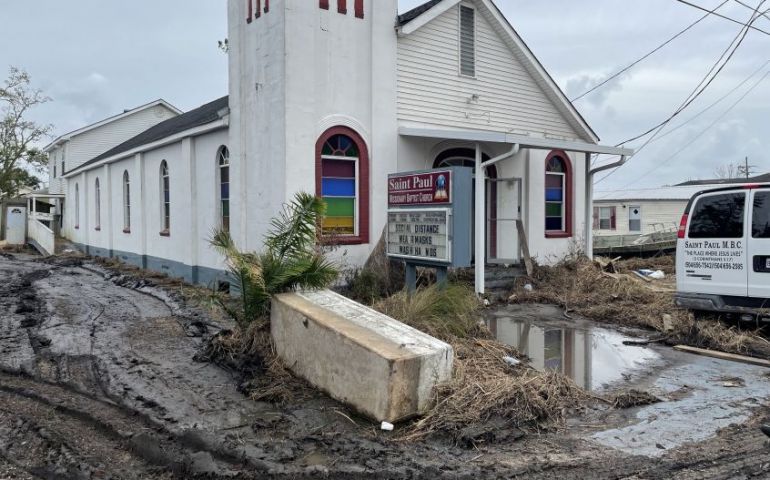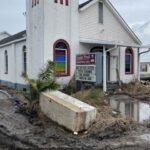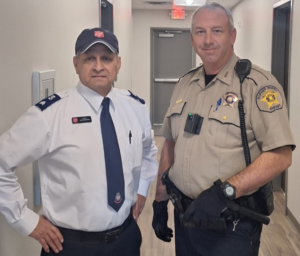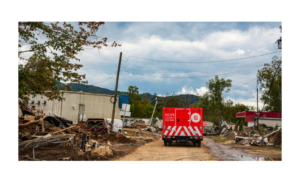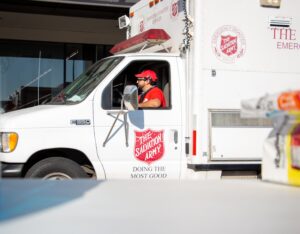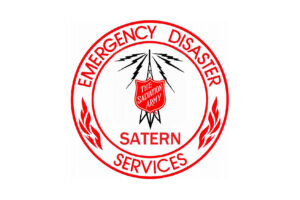This is Ironton. An historic African American community in Plaquemines Parish, Louisiana, founded by freed slaves in the 1800s. Ironton has been devastated by Hurricanes, flooding, and environmental injustices before. Hurricane Ida was no different.
The unincorporated community is 25 miles from New Orleans on the West Bank of the Mississippi River. In fact, it is crammed between the Mississippi River levee and Louisiana Highway 23. Many of the people that called Ironton home are related, with some generations going back as far as the first families that settled into four residential blocks anchored by a baseball field, concession stand and park. The people of Ironton fought for running water for their community, and in 1980 they won. Hurricane Katrina destroyed every home, and yet they rebuilt.
The flooding in Ironton is a result of the lack of a wetlands buffer, and when hurricanes or tropical storms refuse to relent, water is pushed from the Gulf of Mexico, into Barataria Bay, across Hwy 23, and right into the Ironton community. Lifelong residents are slowly returning to save what they can in the form of pictures, and family heirlooms, clothing soaked in sludge, and mold covered remnants of their vibrant and thriving community. They are coming back to help return family, friends, and neighbors to the final resting places that were disturbed by flood waters, leaving coffins and vaults scattered in what used to be streets, and front yards.
Crews from the Salvation Army visited Ironton, taking hot meals, beverages and other supplies needed to begin the recovery process. This is Ironton. The people who call it home say they will return stronger than ever. Their history says they will rebuild.


